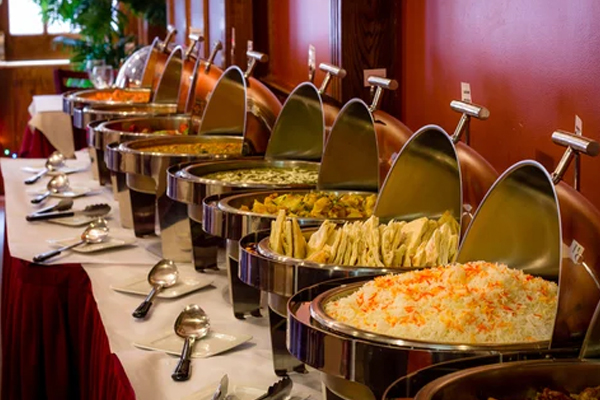The growing sophistication of options for mini party catering represents a fundamental shift in how we approach celebrations in an era defined by economic uncertainty, environmental awareness, and changing social dynamics. What might superficially appear as merely a scaled-down version of traditional event food service actually reflects a profound recalibration of values around hospitality, sustainability, and meaningful social connection.
The Economic Reality Behind the Trend
Let’s be brutally honest about what’s happening in our celebration spaces: the extravagant, wasteful displays that once signaled hospitality now often read as tone-deaf excess. This shift didn’t happen in a vacuum—it emerged from the economic reality where many find themselves navigating precarious financial circumstances while still desiring meaningful celebration milestones.
The mini party format offers a pragmatic solution: scaled-down elegance that preserves the essential social function of gathering without the crushing financial burden that traditional catering often imposes. This isn’t merely about cost-cutting; it’s about aligning celebration practices with economic reality.
“The mini catering format represents a form of resistance against the culture of conspicuous consumption. It states clearly that meaningful connection doesn’t require financial strain—that thoughtful curation matters more than excessive abundance.”
The Sustainability Imperative
Beyond economic considerations, the shift toward smaller-scale catering directly addresses the increasingly urgent issue of food waste:
· Precise quantity planning – Smaller gatherings allow for more accurate food preparation
· Focused menu design – Carefully curated selections minimize specialty ingredient waste
· Appropriate portioning – Individual servings naturally prevent over-plating
· Just-in-time preparation – Staggered cooking reduces waste from pre-prepared items
· Simplified logistics – Smaller setups mean reduced transportation emissions
These sustainability advantages aren’t incidental—they’re increasingly central to how conscientious hosts evaluate their celebration choices. As awareness of food system impacts grows, the excessively abundant traditional catering model appears not as generous but as environmentally irresponsible.
The Quality Revolution
The economics of mini catering create a counterintuitive advantage: when feeding fewer people with a smaller budget, the per-person quality can actually increase dramatically. This quality-over-quantity approach manifests in:
· More sophisticated ingredient sourcing
· Greater attention to dietary preferences and restrictions
· Elevated presentation possibilities
· More intricate preparation techniques
· Fresher service with less holding time

This shift directly challenges the notion that impressive hospitality requires overwhelming abundance. Instead, it redefines impressiveness through thoughtfulness, quality, and attention to detail.
“The mini catering model inherently privileges quality over quantity. When hosts aren’t pressured to feed an army, they can direct resources toward creating truly memorable culinary experiences that respect both the occasion and the guests.”
The Social Architecture Advantage
Perhaps the most significant benefit of smaller-scale catering lies in how it structures social interaction. Traditional large events often create:
· Overwhelming noise levels that inhibit meaningful conversation
· Social anxiety for guests who don’t know many attendees
· Logistical stress that prevents hosts from actually enjoying their events
· Environmental conditions that exclude sensitive individuals
· Financial pressure that transforms celebration into obligation
By contrast, mini gatherings typically feature:
· Conversational environments where genuine connection is possible
· Inclusive atmospheres where everyone feels acknowledged
· Manageable logistics that allow hosts to be present with guests
· Adaptable settings that can accommodate various sensory needs
· Reasonable costs that democratize the ability to host
These characteristics create celebration spaces where connection—the ostensible purpose of gathering—can actually occur.
The Practical Implementation
Successfully executing mini party catering requires a different strategic approach than traditional event planning:
· Menu design focusing on dishes with maximum impact in small portions
· Thoughtful beverage pairings that complement rather than overwhelm the food
· Strategic timing of service to maintain energy throughout the gathering
· Careful attention to dietary accommodations within a limited menu
· Creative presentation approaches that maximize visual impact
When properly implemented, the format creates an experience that feels special and abundant despite its more focused scale.
The Psychological Shift
Beyond practical considerations, the move toward smaller celebrations reflects a deeper psychological reassessment of what constitutes meaningful social connection. The pandemic forced many to experience gathering differently, revealing that:
· Selective guest lists often create more meaningful exchanges
· Quieter environments allow for deeper conversations
· Simpler formats reduce host stress, improving the experience for everyone
· Focused celebrations emphasize the reason for gathering rather than peripheral concerns
· Smaller investments reduce the pressure for events to be “perfect”
This recalibration has enduring value beyond the immediate practical concerns that initially drove the trend.
The Future Evolution
As economic uncertainty continues and environmental concerns intensify, the mini party catering format will likely evolve further. Emerging trends suggest development toward:
· Hyper-personalized menus tailored to specific guest preferences
· Increased emphasis on storytelling through food choices
· Integration of digital elements that connect remote participants
· More sophisticated eco-friendly service materials
· Greater attention to sourcing transparency and ethical production
These innovations will further strengthen the mini format’s position as a forward-thinking alternative to traditional approaches.
The Conscious Choice
In a world of increasing economic stratification, environmental urgency, and social fragmentation, our celebration practices aren’t merely logistical decisions—they’re statements of values. The mini party catering format represents a conscious choice to prioritize quality over quantity, sustainability over excess, and genuine connection over performative abundance.
This evolution reflects a broader societal recalibration of what truly matters in our shared experiences. As we navigate uncertain times, the thoughtful intimacy of properly executed mini gatherings offers a template for how we might celebrate important moments in ways that honor our relationships, our communities, and our planet without sacrificing the joy and connection that represent the true purpose of celebration through mini party catering.



